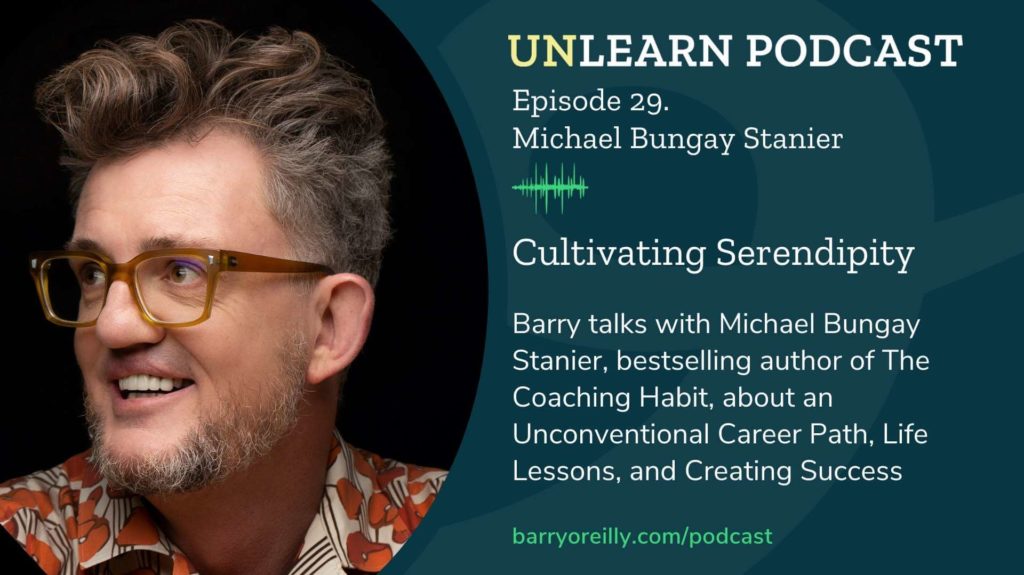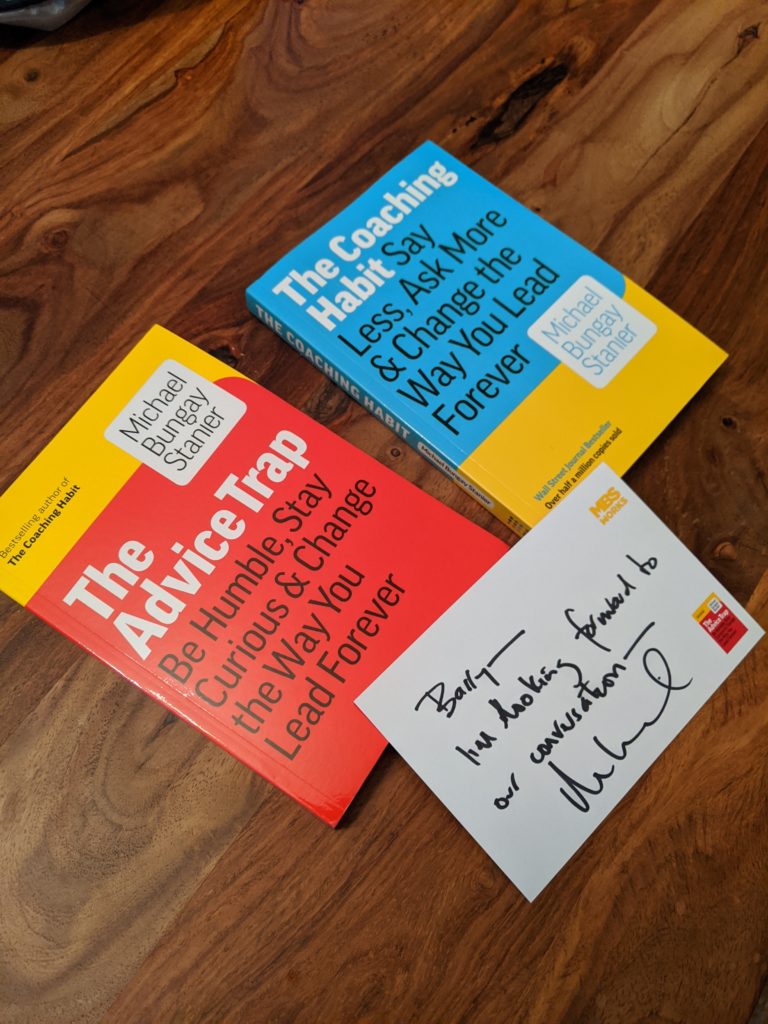Michael Bungay Stanier is the bestselling author of The Coaching Habit. He is part of the Thinkers 50 and has been named the number one Thought Leader in Coaching this year. Michael joins Barry O’Reilly on the Unlearn Podcast this week to share insights, including how to measure success and pivotal lessons that shaped him. Listen to Cultivating Serendipity with Michael Bungay Stanier.
An Unconventional Career Path
There is a saying that inspiration is when your past suddenly makes sense. Certainly, several experiences in his early career showed Michael that he needed to work for himself in order to be at his best. He recounts that the turning point for him was 20 years ago when he was fired from the last company he worked with. That’s when he started his own business. [Listen from 1:10]
Three Memorable Lessons
Barry asks Michael about the lessons he’s learned over the years. Michael responds with the three pivotal lessons that he remembers to this day:
- You need to understand who you work best with. He is a great leader to his ideal clients, Michael says. “I’m great at having people’s backs; I’m great with people who take responsibility and accountability; I’m great with people who have just been waiting… for the wind beneath their wings… In terms of figuring out who influences and nudges and helps shape people’s journeys, you’ve got to get the right match between the right people.” [Listen from 8:40]
- The power of No. “Part of what I’ve learned is that the more courageous I can be about what I say no to and the fewer things that I say yes to, the more likely it is I’m going to make a difference in the world.” A lesson that stands out for Barry from The Coaching Habit is that if you’re going to say yes to something, that means you have to say no to something else. There’s great discipline in being able to say no. [Listen from 12:00]
- Be careful about what you measure as success. Barry and Michael talk about the insidiousness of vanity metrics: sometimes the metric becomes the target and you do anything to achieve it, oftentimes destroying the bigger win that you’re looking for. Michael says that how he measures success is to constantly keep in mind “the bigger game.” He describes how he used this principle with his book. [Listen from 17:00]

Serendipity or Intention?
Is success intentional or serendipitous? How do we create success? Barry posits that it starts with systems: when you have big aspirations you need to think big but start small. Michael agrees that “intentionality is what allows serendipity.” Taking steps towards your goal is what prepares you to notice opportunities that you can capitalize on. [Listen from 24:50]
Advice That Has Shaped Michael’s Life
A question from his Latin teacher helped Michael decide to become a Rhodes Scholar. Commendation from a past employer helped him see himself as a force for good. And a frustrated directive from his friend to focus helps him “find the focal point that allows [me] to play but also creates the boundaries in which [I] play so that there’s a coherence to the stuff that [I] do.” Barry adds that we all need to have a system for who gives us feedback and helps us become aware of our blind spots.
Michael comments that the deepest level of feedback is to speak to a person’s being rather than their doing. “To speak to somebody’s inherent qualities as to how you see them and how you experience them is a very powerful active leadership,” he remarks. [Listen from 28:15]
Looking Ahead
Michael has launched a podcast called We Will Get Through This, where he talks with interesting people about building resilience at the personal, team and organizational levels. He says that he is still figuring out how he will serve next, but he is disciplining himself to say yes less so that he has the space to see what emerges. [Listen from 34:05]
















